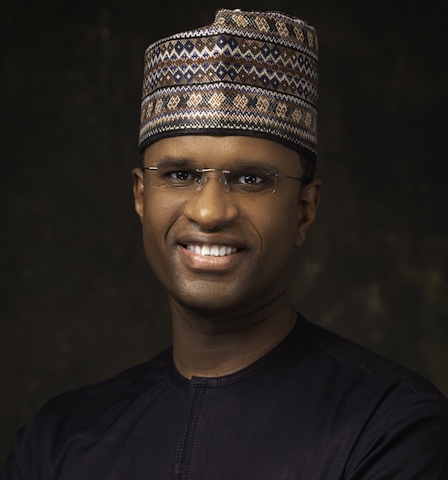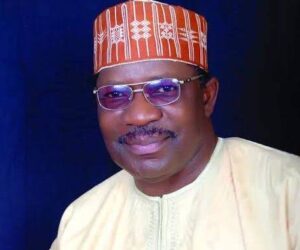I have lived in the United Kingdom for more than four years in total as an adult. And before reaching adulthood, I had spent some time there and later, through travel and work, I have continued to engage with people in developed countries. Today, most of my colleagues are based in those societies, and I interact with them daily. These experiences have forced me to reflect deeply on the differences between life in developed and underdeveloped nations. One of the most striking differences is a mindset that is almost invisible in developed countries but very common where I come from – Nigeria – and, by extension, in many underdeveloped societies. It is the belief that in every quarrel or disagreement, one must be careful not to “burn bridges” because tomorrow you may need the person you are opposing. This idea is repeated so often that it has become a cultural reflex. But in all my conversations with people in developed countries, I have never once heard this kind of fear expressed.
In Nigeria, whenever someone takes a firm stand against another person (whether in politics, in business, or even in everyday life), the chorus begins: “Be careful, you do not know what tomorrow will bring. You may need that person one day.” It is a warning that reflects insecurity more than wisdom. For example, if I write a strong critique of a public figure in the newspaper, I can guarantee that many Nigerians will rush to warn me to tread carefully. They will say that tomorrow, if I ever need that person’s influence or help, I may regret my words. Years ago, I had a brutal exchange with someone from my hometown of Yola, Nigeria. When I refused to sugarcoat my words and gave him the same treatment he had given me, he tried to deflect from the main argument by reminding me that we come from the same place and that one day in that same town where we come from, I might need his help, and he might refuse me. My response has always been simple: even if you become the president of Nigeria tomorrow, it will not stop me from calling out your nonsense today. Positions, titles, social class, whether you are rich or poor, will not shield you from criticism if you deserve it.
But why is this fear of burning bridges such an obsession in underdeveloped societies but almost nonexistent in developed ones? I believe the difference lies in planning and security. In developed countries, people live in systems built on merit and structure. Success is not dependent on whether you are in someone’s good books as people plan their lives carefully, build their careers on clear skills and contributions, and trust institutions to protect fairness and serve justice reasonably. As a result, they do not need to cling to others for survival as another person’s rise to prominence does not threaten them, and another person’s fall does not secure their future. In underdeveloped countries, it is the opposite. Merit is often ignored, planning is rare, insecurity dominates, and the place is worse off for it. As such, people rely heavily on connections because they have not built independent systems of survival. Thus, offending someone important can feel like sealing your own fate because your unplanned life may indeed depend on the goodwill of others. That insecurity is what makes people afraid to speak the truth or take hard positions.
But we see in developed societies that some people build their entire careers by criticizing the most powerful people in the societies and their boldness does not harm them but in fact, it often strengthens their standing. I know of commentators and journalists who deliberately wait until someone becomes a major figure before unleashing their most pointed critiques and they are respected for it, and their careers thrive. They do not fear tomorrow because they have secured their futures through their skills and planning, not through begging for favors. This is why I find it strange when people in Nigeria warn me that my words today may haunt me tomorrow. In developed countries, tomorrow is secured through merit, not through silence and pleasing others. People who have structured their lives properly do not fear the bridges they burn, because they know they have built enough foundations to stand on their own and that is how an ideal society should be.
Also worthy of note is that what passes as “wisdom” in underdeveloped countries is often just insecurity. Telling someone not to offend others because they may need them in the future is not strategic advice but a reflection of how weak and unplanned our systems are and it reveals how dependent many people are on the whims of others, rather than on their own capacity and preparation. Of course, no one should go out of their way to be reckless or rude at the slightest reason as respect remains important. But respect should not mean silence in the face of wrongdoing, nor should it mean tolerating nonsense for fear of the future. The culture of constant warnings about tomorrow creates timid societies that are unable to hold leaders accountable or to build genuine integrity.
Personally, I believe that I am heading toward an age in my life where I am more convinced than ever that I should reject the fear of tomorrow’s bridges. If people choose to be offended when I speak the truth today, that is their burden to carry, not mine. Their future positions, even if they will end up as president of Nigeria, will not save them from criticism from me if they are wrong, and my future needs will not force me to beg for their mercy. We need to recognize that this fear of burning bridges is not even a universal human instinct but a symptom of living in underdeveloped societies, where insecurity and lack of planning dominate. We see that in developed societies, people can afford to live boldly because their futures are not tied to anyone’s goodwill. Until underdeveloped societies begin to plan better by valuing merit and building real structures of security, this fear will continue to define our relationships.
The next time someone warns you not to offend others because of what tomorrow may bring, pause and think and ask yourself why such a mindset thrives only in underdeveloped countries and not in developed ones. The truth is that when people do not plan their lives and when societies do not reward merit, fear becomes the currency of survival. But it does not have to be that way as a person who has built a secure foundation for their life should never fear speaking the truth today, no matter what tomorrow brings. And a society that truly values merit will not punish people for standing firm on principles. Until we shed this culture of insecurity disguised as wisdom, which is in fact just plain foolishness used to justify the reality of a failed society, people in countries like Nigeria and others that have refused to develop will continue to live in fear of bridges that may never even need to be crossed. They will eventually realize that the very people they are waiting for to come and save them will not come because those people too are mortals who do not even have control over their own lives. And when that realization finally hits, it will be too late, because a life lived in fear of tomorrow is already a wasted life.
Mohammed Dahiru Aminu ([email protected]) writes from Yola, Nigeria.










